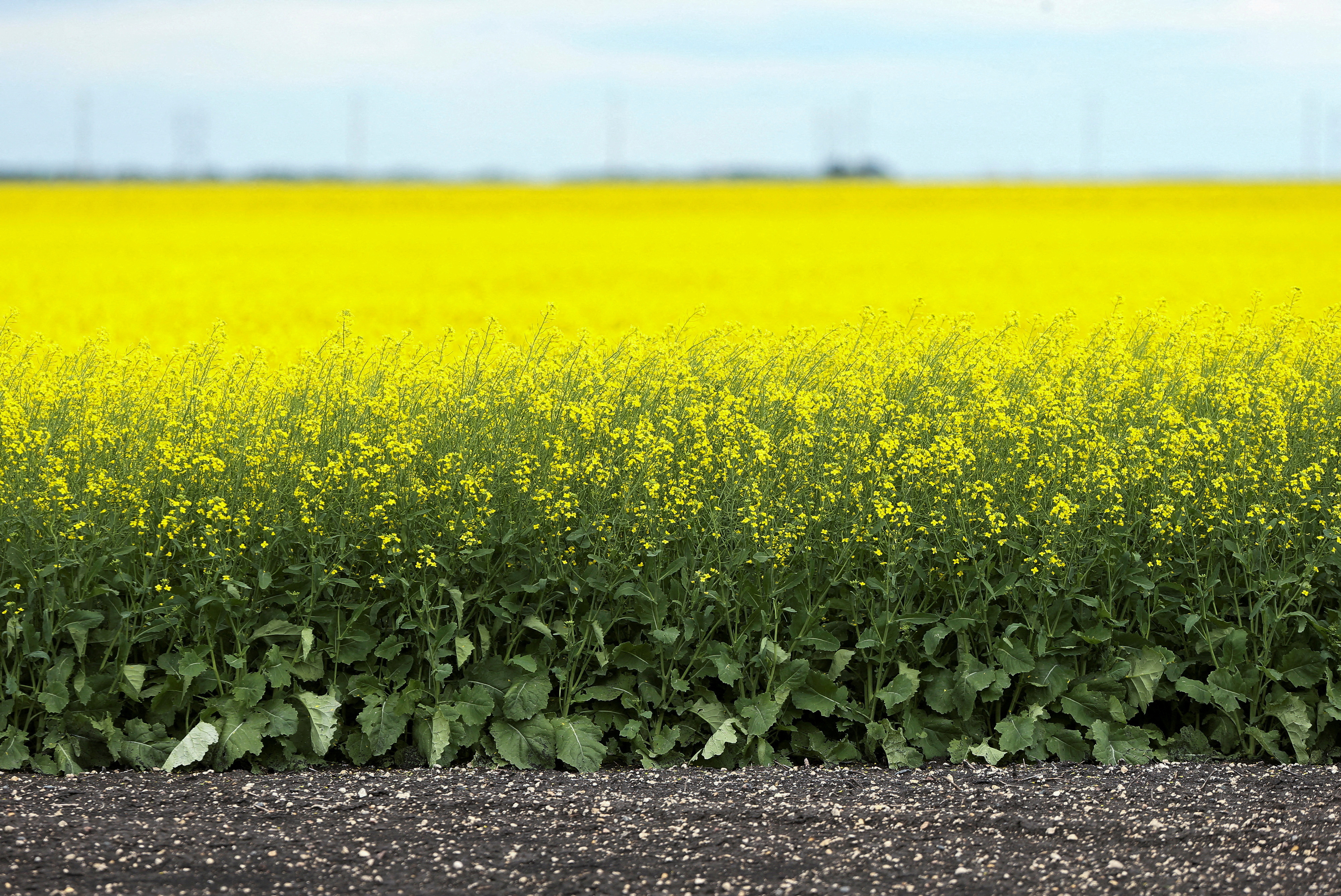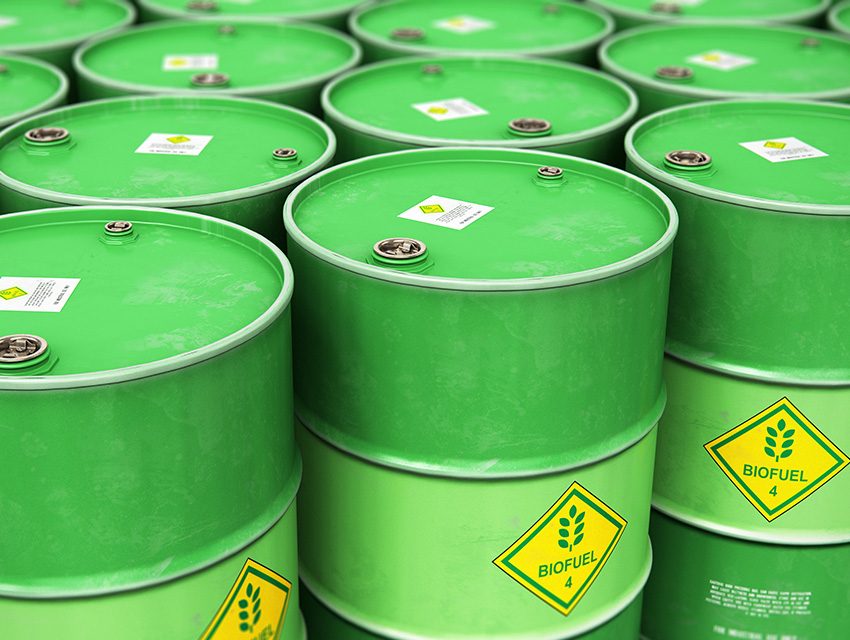
The North American biofuels industry is facing a major crisis as companies across the U.S. and Canada scale back production, shelve projects, and idle plants due to uncertainty surrounding trade policies and subsidies. Once booming with record investments and production, the industry is now navigating a turbulent period that threatens the future of renewable diesel and biodiesel.
With tariffs disrupting feedstock costs and the U.S. government wavering on biofuel subsidies, companies are left scrambling to adjust. This contraction is not just affecting biofuel producers but also farmers, processors, and rural economies that have heavily relied on the sector’s growth.

Why Biofuel Companies Are Scaling Back Production
For years, biofuel producers in Canada and the U.S. benefited from favorable policies and strong demand. However, a combination of trade conflicts, regulatory uncertainty, and shifting federal incentives is now forcing them to scale back operations.
1. Trade Wars and Tariffs Are Driving Up Costs
The latest round of tariffs imposed by the U.S. on Canadian canola and biofuel products has created significant challenges for producers. On March 4, 2025, the Trump administration imposed a 25% tariff on Canadian biofuel imports, sending shockwaves through the industry.
For companies like Federated Co-operatives Limited, this uncertainty has led to tough decisions. The company recently shelved plans for a renewable diesel and canola processing plant in Saskatchewan, one of five projects that were set to expand Canada’s canola processing capacity by 60% over five years.
"Just how do you set a price when you don't know if you're going to be wrong a day later, a month later, six months later?" said Paul Niznik, Director of Energy at Capstone LLC.
2. Unclear Biofuel Subsidies Are Adding to the Confusion
In addition to trade uncertainty, biofuel subsidies in the U.S. remain in limbo. The Inflation Reduction Act, passed under the Biden administration, had introduced a new tax credit structure (45Z) that rewarded biofuel producers based on carbon intensity. However, with the transition to the Trump administration, implementation of these tax credits remains uncertain.
Western Dubuque Biodiesel, a plant in Farley, Iowa, has been idled since December 2024 due to the lack of clarity surrounding the 45Z tax credit. Tom Brooks, General Manager of Western Dubuque Biodiesel, explained how this policy uncertainty has made running the plant financially unviable:
"If I were to run today, I lose 46 cents a gallon under 45Z. Under that previous credit, I would have made 15 to 20 cents a gallon," Brooks said.

>> RELATED: Senate Agriculture Committee Introduces Draft Farm Bill with Key Updates for Bioethanol and Biofuels
The Impact on Farmers and Oilseed Processors
The biofuels crisis isn’t just affecting energy producers—it’s hitting farmers and oilseed processors hard. The U.S. and Canada have built massive oilseed processing facilities to support biofuel production, but with demand shrinking, farmers are facing a drop in canola and soybean prices.
3. Lower Demand Is Pushing Down Crop Prices
Canada exported $6.02 billion worth of canola and canola products to the U.S. in 2023, including $4.37 billion in oil. However, with tariffs set to increase on April 2, 2025, shipments are expected to decline sharply, forcing prices to drop.
"Given the risk, prices are going to drop. Shipments are going to slow. Long-term contracts are going to get very, very tenuous," said Rick White, President and CEO of the Canadian Canola Growers Association.
4. Soybean Farmers Are Cutting Back on Planting
In the U.S., soybean farmers are also feeling the pressure. Crush margins for soybeans have dropped nearly 60% from a year ago, leading to lower planting projections for 2025. Companies like Archer-Daniels-Midland (ADM) and Bunge, which dominate North America’s soybean and canola processing industry, are warning that 2025 earnings could be their lowest in six years.
How the U.S. and Canada Are Responding
5. The U.S. Biofuels Industry Is Pushing for Policy Stability
The biofuels industry in the U.S. is pushing the government to increase biofuel mandates under the Renewable Fuel Standard (RFS) to provide stability for producers. However, the Environmental Protection Agency (EPA) has yet to announce whether they will raise biofuel volume mandates beyond the current 3.35 billion gallons per year, a level that is far below industry capacity.
6. Canada Is Looking for Alternative Markets
In Canada, policymakers are scrambling to find new buyers for their biofuels and oilseeds. Kody Blois, Canada’s new agriculture minister, has stated that the government is working with Prime Minister Mark Carney to increase domestic demand for canola-based biofuels to offset lost U.S. sales.
Meanwhile, farmers like Andre Harpe from Alberta are struggling with uncertainty.
"Right now we don't know if we should be selling or holding or dumping," Harpe said.
What’s Next for Biofuels in North America?
Despite the current challenges, experts agree that biofuels will continue to play a role in North America’s energy future. However, the scale and pace of growth are now at risk due to trade conflicts, policy shifts, and market uncertainties.
The question remains: Will governments step in to stabilize the industry, or will biofuels producers have to ride out a painful period of contraction? For now, companies, farmers, and processors alike are holding their breath as they await clarity.
Subscribe to the newsletter
Daily decarbonization data and news delivered to your inbox
Follow the money flow of climate, technology, and energy investments to uncover new opportunities and jobs.
Latest issues
-
This $4.1M Deal Could Change Carbon Capture's Playbook
Inside This Issue 🗜️ CarbonQuest Lands $4.1M Alberta Deal on Gas Compressors 🛡️ CADO, 123Carbon, and Assure SAF Registry Join Forces to Tackle SAF Integrity Gaps ✈️ ISCC, OMV, and Airbus Partner t...
-
Can Koloma Crack Iowa's Billion-Year-Old Secret?
Inside This Issue ⛏️ Iowa's Hydrogen Rush: Can Koloma Strike Gold Before Rules Kick In? ✈️ Bentley Commits to Use 100% Sustainable Aviation Fuel for Car Airfreight 🌬️ Minister Parrott Provides Upd...
-
$47M Just Poured Into This SAF Producer
Inside This Issue 💰 LanzaJet Announces $47M in New Capital and First Close of Equity Round at $650M Pre-Money Valuation 🚢 Maersk's Ethanol Bet Could Reshape U.S. Fuel Markets 🪨 Canada Nickel and t...
Company Announcements
-
RCJY and Climeworks Deepen Partnership to Advance Large-scale Direct Air Capture in Saudi Arabia
Key takeaways: Under the guidance of the Ministry of Energy, the Royal Commission for Jubail and Yanbu and Climeworks have signed a Memorandum of Understanding to expand their collaboration on de...
-
CHARBONE Confirms New UHP Hydrogen Orders and its First UHP Oxygen Order in the United States
Brossard, Quebec, February 25, 2026 – CHARBONE CORPORATION (TSXV: CH; OTCQB: CHHYF; FSE: K47) (“CHARBONE” or the “Company”), a North American producer and distributor specializing in clean Ultra Hi...
-
Climeworks Establishes Canadian Headquarters in Calgary
Calgary, Alberta, February 20, 2026 — Climeworks, a global leader in commercial carbon removal, has established its Canadian headquarters at Calgary’s ETC, one of Alberta’s leading hubs where start...
-
MIAMI, Feb. 24, 2026 /CNW/ - Power Sustainable Infrastructure Credit ("PSIC") recently closed an $85M senior secured financing for Sagepoint Energy ("Sagepoint"), a vertically integrated renewable ...